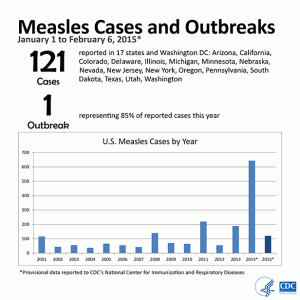Background:
The CDC FastStats sheet states that, in 2013, there were roughly 30,000 deaths and 10.7 deaths per 100,000 people in the population from motor vehicle traffic accidents. In the case, “When to Give Bad News,” the victim of a serious car accident, Amira, is being treated for various severe injuries such as a collapsed lung and kidney damage. Meanwhile, her partner, Casey, passes away at the same hospital. As Amira is preparing for surgery that may or may not save her life, she asks about Casey as well as her daughter who was successfully treated at a different hospital.

Dilemma:
One dilemma that is important to discuss is whether the nurses should tell Amira about the passing of her partner before her surgery as she drifts in and out of consciousness. Amira does ask about the well-being of her child and Casey when she is conscious. Therefore, it can be argued that it is unethical to either lie about her partner being alive or to not respond to the question at all. This course of action would count as a violation of her autonomy regarding the decision of whether she wants to hear the truth. In addition, the medical staff could theoretically deliver the news after Amira recovers from the procedure, but as the case states, there is a possibility that Amira may not survive the surgery, so they may not have the chance to tell her later, which would lead Amira to pass away without knowing about Casey’s death.
However, there are also several reasons for not providing Amira with this information. For example, the case mentions that Amira’s condition is very serious, “Her physical status is unstable, and the nurses and their colleagues fear that any further stress might seriously impair her capacity to survive the surgery and post-operative care in a coma” (Moorhouse and Khan, 233). The medical team appears to believe that Amira may not be able to make a full recovery if she endures more stress. Learning about the death about her loved one would certainly count as the addition of a significant amount of stress. The medical staff would, thus, be violating the nonmaleficence principle by endangering the health of their patient with this stressful news about the death of her partner.Therefore, the medical staff definitely must consider her medical well-being as they decide when to deliver the bad news.
Conclusion:
While it could be seen as unethical, assuming she dies during the surgery, to let Amira pass away without knowing about Casey’s death, I would argue it is even more unethical to increase Amira’s chances of not surviving the procedure by delivering this news as she is about to be operated on. Autonomy is a very important principle to uphold, but in this case, it would harm Amira, so nonmaleficence should outweigh autonomy. Ultimately, as medical professionals, it is the staff’s job to do all they can to save Amira’s life, and in this difficult situation, I suggest lying about Casey or withholding that information entirely and then hoping that Amira survives the procedure so that they can tell Amira the truth after she recovers.
References:
CDC. “Accidents or Unintentional Injuries.” Centers for Disease Control and Prevention. N.p., 06 Feb. 2015. Web. 13 Feb. 2015.
Moorhouse, A. and P. Khan “Case 3: Emergency and Trauma Nurses: When to Give Bad News” Concepts and Cases in Nursing Ethics. 232-242.
Source for the image: http://www.injurylawyers.com/wp-content/uploads/2014/11/2-car-crash-1-300×225.jpg

 Placebos are inert and don’t cause anything (Moerman DE, Jonas WB).” This statement may not be entirely valid, but the point is that placebos are not as effective as the correct treatment. “I don’t believe that the use of placebos is immoral or unethical. In reality, it seems that the medical profession’s lack of understanding and utilization of the mechanism of the placebo in the healing process is tragic, shortsighted and cowardly (wrf.org).” It may be easier for physicians to approach placebos and say that they do not work, but evidence proves that if used, placebos do work between 30%-60% of the time (wrf.org). As long as a patient is receiving the most beneficial treatments prior to administration of placebos, doctors ought to utilize placebos when no other viable treatment is present.
Placebos are inert and don’t cause anything (Moerman DE, Jonas WB).” This statement may not be entirely valid, but the point is that placebos are not as effective as the correct treatment. “I don’t believe that the use of placebos is immoral or unethical. In reality, it seems that the medical profession’s lack of understanding and utilization of the mechanism of the placebo in the healing process is tragic, shortsighted and cowardly (wrf.org).” It may be easier for physicians to approach placebos and say that they do not work, but evidence proves that if used, placebos do work between 30%-60% of the time (wrf.org). As long as a patient is receiving the most beneficial treatments prior to administration of placebos, doctors ought to utilize placebos when no other viable treatment is present.